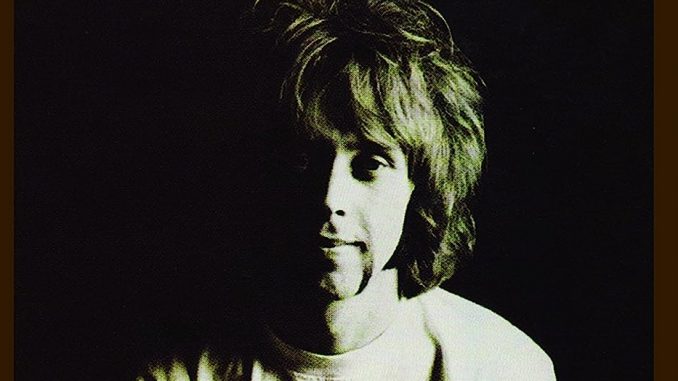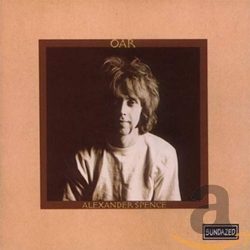
One of the roads to great americana is paved with maverick artists who have found new ways to interpret roots music in an unexpected manner.
 A legend like Gram Parsons is considered as one of the progenitors of ‘cosmic country’ (his term, anyway). Alexander ‘Skip’ Spence and his masterpiece ‘Oar’ could in that manner be considered as a progenitor of psych-americana.
A legend like Gram Parsons is considered as one of the progenitors of ‘cosmic country’ (his term, anyway). Alexander ‘Skip’ Spence and his masterpiece ‘Oar’ could in that manner be considered as a progenitor of psych-americana.
Leftfield weirdness is something that has become a tag attached to Spence’s name from the start of his musical career, from the obscure West Coast band The Other Side to being one of the initial members of Quicksilver Messenger Service, a first drummer for Jefferson Airplane, refusing the same stint in Buffalo Springfield, to becoming one of the members of legendary Moby Grape, writing ‘Omaha,’ one of that band’s signature songs.
While recording Moby Grape’s second album, ‘Wow!,’ in New York, Spence got involved with some strange people, started using hard drugs and having strange (and very long) trips. At one point he picked up the fire axe in the hotel the band was staying in, threatened a hotel attendee with it then attempted to attack his band colleagues, Jerry Miller and Don Stevenson, as he ‘explained,’ “to save them from themselves”, chopping the door of Stevenson’s room with the axe. The police were called in and Spence was admitted to the infamous Bellevue mental hospital in New York. During the six months Spence spent at Bellevue, he started writing songs that became the core of ‘Oar,’ his sole official outing, with a solo taken in the true. sense of that word.
The songs attracted the attention of producer David Rubinson, who sent Spence to Nashville and to his trusted recording engineer Mike Figlio, to whom he gave just one instruction – “keep the recording equipment on at all times”. For a week, Spence (who by that time was practically deaf in one ear) and Figlio were the only people in the studio, Spence singing and playing all the instruments and Figlio recording. During that time, they recorded about 30 songs, of which Spence chose 12 that he thought might be used as demos for an album that would be re-recorded later.
Rubinson, who was not present at the recording sessions at all, simply took the 12 tracks to Columbia to be issued as the ‘Oar’ album. The result – one of the best self-played and produced folk/rock albums around that had been at the same time both described as “most harrowing” and “most exhilarating.” As you listen to the 12 songs (and you can also call them free-form compositions too) of the original album (some reissue versions contain all the recorded material), you realize that those “harrowing” and “exhilarating” epithets truly fit. The moment opener “Little Hands’ starts you realize why ‘Oar’ became such a cult favourite, particularly among americana-oriented artists – its spaced-out melody, guitar, and vocals spell everything that is good about left-field Americana. By the time ‘Grey/Afro’ closes the album with its muted vocals and continuous pulsing bass, the listener has been on a ride of the singular musical vision of all things roots – from the countrified ‘Cripple Creek’ to almost waltzing ‘Margaret-Tiger Rag’ to gospel/blues variations of ‘Book of Moses.’
No wonder the names like Robert Plant, Tom Waits, Beck, Jay Farrar, and others took on recording a tribute to this seminal album, titled ‘More Oar’ released in 1999, the year Spence died. As the story goes, his son Omar brought a promotional copy to Spence and played it to him by his hospital bed. Upon listening, Spence showed a weary smile. A few hours later he was gone, two days ahead of his 53rd birthday.


